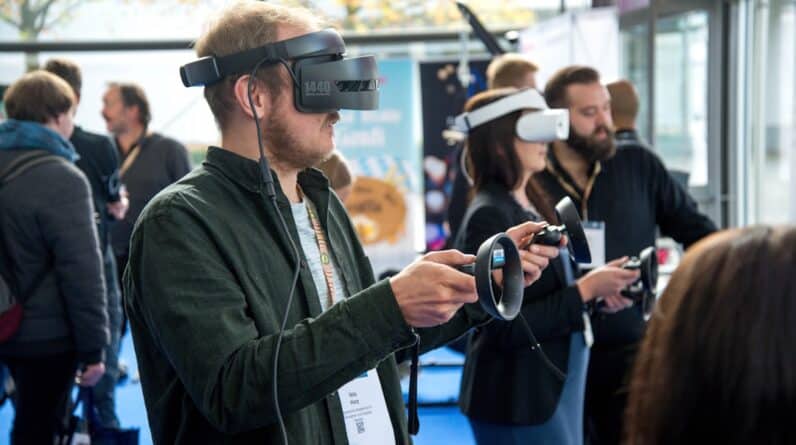As you step into the world of fitness, you may have noticed a significant transformation in how people approach their health and wellness. Artificial Intelligence (AI) has emerged as a powerful ally in this journey, revolutionizing the way you engage with your fitness routine. From personalized workout plans to real-time feedback, AI is reshaping the landscape of fitness, making it more accessible and effective for everyone.
The integration of AI into fitness is not just a trend; it represents a fundamental shift in how you can optimize your health and achieve your goals. The rise of AI in fitness is driven by advancements in technology and data analytics. With the ability to process vast amounts of information quickly, AI can analyze your performance, preferences, and even your physiological responses to create tailored experiences.
This means that whether you are a seasoned athlete or just starting your fitness journey, AI can provide insights and recommendations that were previously unimaginable. As you delve deeper into this topic, you’ll discover how AI is not only enhancing individual experiences but also contributing to broader trends in health and wellness.
Key Takeaways
- AI is revolutionizing the fitness industry by providing personalized and data-driven solutions for individuals.
- AI plays a crucial role in personalized fitness by analyzing data from wearable technology and providing tailored workout and nutrition plans.
- Wearable technology, such as fitness trackers and smart clothing, is enhanced by AI to provide real-time feedback and insights for users.
- AI is used in nutrition and diet planning to analyze individual dietary needs and provide personalized meal plans and recommendations.
- Virtual coaching and personal training are being transformed by AI, offering interactive and personalized workout experiences for users.
The Role of AI in Personalized Fitness
Customized Fitness Plans
By analyzing data from various sources, including your workout history, biometric information, and even your mood, AI can create a fitness plan that is uniquely yours. Imagine having a virtual coach that understands your strengths and weaknesses, guiding you through workouts that are perfectly aligned with your capabilities.
Real-Time Adaptation
As you progress in your fitness journey, your needs will evolve. AI can monitor your performance and adjust your workout intensity or suggest new exercises to keep you challenged and engaged. This dynamic approach not only helps you avoid plateaus but also keeps you motivated by introducing variety into your routine.
Enhanced Fitness Experience
With AI as your partner, you can experience a level of personalization that enhances your overall fitness experience.
AI and Wearable Technology in Fitness

Wearable technology has become an integral part of the fitness landscape, and its synergy with AI is creating unprecedented opportunities for health monitoring and improvement. Devices like smartwatches and fitness trackers collect a wealth of data about your physical activity, heart rate, sleep patterns, and more. When combined with AI algorithms, this data transforms into actionable insights that empower you to make informed decisions about your health.
For instance, as you wear a fitness tracker during your workouts, AI analyzes your heart rate variability and energy expenditure to provide real-time feedback on your performance. This information can help you optimize your training sessions by indicating when to push harder or when to take a step back. Additionally, wearables equipped with AI can detect patterns over time, allowing you to identify trends in your fitness journey.
This level of awareness not only enhances your workouts but also fosters a deeper understanding of how your body responds to different activities.
AI in Nutrition and Diet Planning
Nutrition plays a crucial role in achieving your fitness goals, and AI is stepping up to revolutionize how you approach diet planning. With the help of AI-driven applications, you can receive personalized meal recommendations based on your dietary preferences, nutritional needs, and fitness objectives. These applications analyze your food intake and suggest meals that align with your goals, whether you’re aiming to lose weight, build muscle, or simply maintain a balanced diet.
Furthermore, AI can assist in tracking your nutritional intake more accurately than ever before. By scanning barcodes or taking pictures of your meals, you can receive instant feedback on the nutritional content of what you’re consuming. This level of detail empowers you to make healthier choices while also ensuring that you’re meeting your dietary requirements.
As you navigate the complexities of nutrition, AI serves as a valuable resource that simplifies meal planning and encourages healthier eating habits.
AI in Virtual Coaching and Personal Training
The rise of virtual coaching has transformed the way you access personal training services. With AI at the helm, virtual coaching platforms are becoming increasingly sophisticated, offering personalized guidance without the need for in-person sessions. These platforms utilize machine learning algorithms to analyze your performance data and provide tailored feedback on your workouts.
Imagine having a personal trainer available at any time, ready to adjust your routine based on real-time data. AI-driven virtual coaching also allows for greater flexibility in scheduling workouts. You can access training sessions whenever it suits you best, making it easier to fit fitness into your busy lifestyle.
Additionally, these platforms often include features like video demonstrations and interactive feedback, ensuring that you maintain proper form and technique during exercises. As you embrace virtual coaching powered by AI, you’ll find that achieving your fitness goals becomes more convenient and effective than ever before.
The Impact of AI on Preventive Healthcare

AI’s influence extends beyond traditional fitness applications; it plays a vital role in preventive healthcare as well. By analyzing data from various sources—such as wearable devices, medical records, and lifestyle choices—AI can identify potential health risks before they become serious issues. This proactive approach empowers you to take charge of your health by making informed decisions based on predictive analytics.
For example, if an AI system detects irregularities in your heart rate or activity levels over time, it can alert you to seek medical advice or adjust your lifestyle accordingly. This early intervention can lead to better health outcomes and reduce the burden on healthcare systems. As you engage with AI-driven preventive healthcare solutions, you’ll gain valuable insights into your well-being that encourage proactive measures for maintaining optimal health.
Challenges and Ethical Considerations of AI in Fitness
While the benefits of AI in fitness are substantial, it’s essential to acknowledge the challenges and ethical considerations that accompany its integration into health and wellness. One significant concern is data privacy; as you share personal information with fitness apps and wearables, there is always a risk of data breaches or misuse. Ensuring that your data is handled securely should be a top priority for both developers and users alike.
Additionally, there are ethical questions surrounding the use of AI in fitness coaching and nutrition planning. For instance, how do we ensure that algorithms do not perpetuate harmful stereotypes or biases? It’s crucial for developers to create inclusive systems that cater to diverse populations without promoting unrealistic body standards or unhealthy behaviors.
As you navigate the world of AI in fitness, being aware of these challenges will help you make informed choices about the technologies you choose to engage with.
The Future of AI in Fitness: Opportunities and Innovations
Looking ahead, the future of AI in fitness is brimming with opportunities for innovation and growth. As technology continues to evolve, we can expect even more sophisticated applications that enhance user experiences and outcomes. For instance, advancements in natural language processing may lead to more intuitive interactions with virtual coaches, allowing for seamless communication about goals and preferences.
Moreover, the integration of AI with emerging technologies like virtual reality (VR) could revolutionize how you experience workouts. Imagine immersing yourself in a virtual environment where an AI coach guides you through an exhilarating workout while providing real-time feedback on your performance. This fusion of technologies has the potential to make fitness more engaging and enjoyable than ever before.
In conclusion, as you explore the intersection of AI and fitness, you’ll discover a world filled with possibilities that empower you to take control of your health journey. From personalized training plans to innovative nutrition solutions, AI is reshaping how you approach fitness in ways that were once unimaginable. Embracing these advancements will not only enhance your individual experience but also contribute to a broader movement toward healthier lifestyles for all.
The future is bright for those willing to harness the power of AI in their pursuit of wellness.
A related article to “Shaping the Future of Health with AI in Fitness” is “AI for Climate Change: Leveraging Technology to Tackle Environmental Challenges” which discusses how artificial intelligence can be used to address environmental issues. To learn more about this topic, you can read the article here.
FAQs
What is AI in fitness?
AI in fitness refers to the use of artificial intelligence technology to enhance and personalize fitness experiences. This can include AI-powered fitness apps, wearable devices, and virtual trainers that use data and algorithms to provide personalized workout plans, track progress, and offer real-time feedback.
How does AI impact the future of health in fitness?
AI has the potential to revolutionize the fitness industry by providing personalized and data-driven solutions for individuals to improve their health and fitness. It can help in creating tailored workout plans, monitoring progress, and offering insights for better decision-making.
What are the benefits of using AI in fitness?
Some of the benefits of using AI in fitness include personalized workout plans, real-time feedback, accurate tracking of progress, and the ability to adapt to individual needs and preferences. AI can also help in preventing injuries and optimizing performance.
What are some examples of AI in fitness technology?
Examples of AI in fitness technology include smart fitness trackers, AI-powered workout apps, virtual personal trainers, and connected fitness equipment. These technologies use AI to analyze data, provide personalized recommendations, and enhance the overall fitness experience.
Is AI in fitness safe and reliable?
When developed and used responsibly, AI in fitness can be safe and reliable. It is important for users to choose reputable and trusted AI fitness products and services, and to follow best practices for data privacy and security. Additionally, AI technology should be used as a complement to professional guidance and not as a replacement for human expertise.






